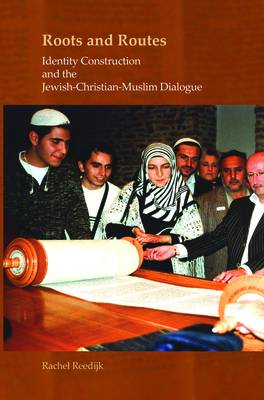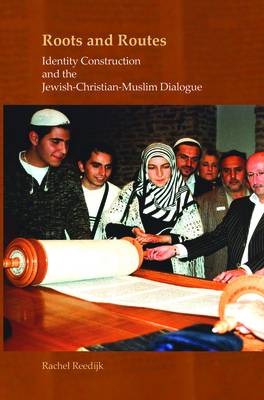
- Afhalen na 1 uur in een winkel met voorraad
- Gratis thuislevering in België vanaf € 30
- Ruim aanbod met 7 miljoen producten
- Afhalen na 1 uur in een winkel met voorraad
- Gratis thuislevering in België vanaf € 30
- Ruim aanbod met 7 miljoen producten
Zoeken
€ 126,95
+ 253 punten
Omschrijving
Dialogue participants demonstrate strong motivations for contributing to interreligious dialogue, based on a firm belief that encountering the other generates understanding - the contact thesis. Interreligious dialogue meets with both suspicion and cynicism: the former because it may result in loss of identity, and the latter because important issues may be ignored. The hitherto unanswered question is how Jewish-Christian-Muslim dialogue affects the identities of its participants.
In this study Rachel Reedijk analyses identity construction in an interreligious context against the backdrop of the dominant either/or discourse regarding religious diversity - and, for that matter, multiculturalism - in Western society. The conceptual framework of this study is constituted by the debate on essentialism and constructivism in the social sciences. She argues that, under the right circumstances, interreligious dialogue can move beyond polemics and apologetics and prepare the ground for understanding in the dual sense of prejudice reduction and interreligious hermeneutics.
In this study Rachel Reedijk analyses identity construction in an interreligious context against the backdrop of the dominant either/or discourse regarding religious diversity - and, for that matter, multiculturalism - in Western society. The conceptual framework of this study is constituted by the debate on essentialism and constructivism in the social sciences. She argues that, under the right circumstances, interreligious dialogue can move beyond polemics and apologetics and prepare the ground for understanding in the dual sense of prejudice reduction and interreligious hermeneutics.
Specificaties
Betrokkenen
- Auteur(s):
- Uitgeverij:
Inhoud
- Aantal bladzijden:
- 388
- Taal:
- Engels
- Reeks:
- Reeksnummer:
- nr. 37
Eigenschappen
- Productcode (EAN):
- 9789042028395
- Verschijningsdatum:
- 1/01/2010
- Uitvoering:
- Paperback
- Formaat:
- Trade paperback (VS)
- Afmetingen:
- 155 mm x 234 mm
- Gewicht:
- 521 g

Alleen bij Standaard Boekhandel
+ 253 punten op je klantenkaart van Standaard Boekhandel
Beoordelingen
We publiceren alleen reviews die voldoen aan de voorwaarden voor reviews. Bekijk onze voorwaarden voor reviews.








